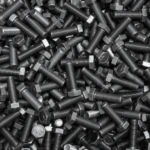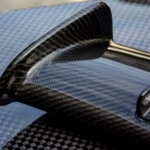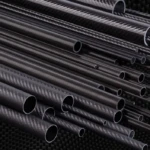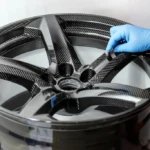As a widely used engineering plastic, Delrin is a popular choice for CNC machining due to its unique combination of strength, stiffness and impact resistance. However, processing Delrin can be challenging if appropriate techniques and guidelines are not followed. In this article, we will provide a comprehensive guide on CNC machining Delrin covering its properties, machining techniques and best practices for achieving high-quality parts.
Delrin, also known as Acetal, is a thermoplastic material known for its high mechanical strength, low friction, and resistance to wear and chemicals. Its characteristics make it ideal for a wide range of applications, including gears, bearings and other precision parts. When it comes to CNC machining Delrin, it is necessary to understand its characteristics and how they affect the processing process.
One of the main challenges of processing Delrin is the tendency to distort and deformation during the processing process. This is due to its high coefficient of thermal expansion, which causes the material to expand and shrink rapidly. To minimize warpage and deformation, it is crucial to maintain a consistent cutting temperature and use cutting tools with high rake angles. Furthermore, the use of suitable coolant, such as compressed air or water-based coolant, can help reduce the risk of warpage and deformation.
Another important consideration when machining Delrin is the choice of cutting tools. Delrin is a relatively soft material that can easily wear tools. To minimize tool wear, cutting tools with sharp edges and high-quality coatings, such as titanium nitrate or alumina, are recommended. Additionally, using tools with larger nose radius can help reduce the risk of tool breakage and improve the surface finish of the parts.
As far as machining parameters are concerned, the choice of spindle speed, feed rate and cutting depth will depend on the specific application and the required surface finish. Generally, high spindle speeds and low feed rates are recommended for high-quality surface effects. However, the depth of the cutting should be optimized to minimize the risk of tool breakage and achieve the required dimensional accuracy.
To ensure optimal results when machining Delrin, best practices for CNC machining must be followed. This includes the use of high-quality CNC machines with advanced features such as high-speed spindles and precision ball screws. Additionally, using appropriate machining strategies such as wood grinding or grinding milling can help improve surface finishes and reduce the risk of tool wear.
In short, CNC machining Delrin is a complex process that requires careful consideration of the properties of materials, processing techniques and best practices. By following the guidelines and techniques outlined in this article, manufacturers can achieve high-quality parts with precision and accuracy. Whether you are producing gears, bearings or other precision parts, CNC machining Delrin is a reliable and efficient way to meet your production needs.
FAQ:
Q: What is the best way to prevent distortion and deformation when machining Delrin?
A: Maintaining a consistent cutting temperature with the right coolant and minimizing the risk of tool wear can help prevent warping and deformation.
Q: Which type of cutting tool is recommended to use to process Delrin?
A: It is recommended to use cutting tools with sharp edges and high-quality coatings, such as titanium nitrate or titanium alumina, for processing Delrin.
Q: What are the best processing parameters for Delrin?
A: The optimal machining parameters for Delrin will depend on the specific application and the required finish. Generally, high spindle speeds and low feed rates are recommended for high-quality surface effects.
Q: Can Delrin be processed using standard CNC computers?
A: Yes, Delrin can be processed using standard CNC computers. However, using high-quality CNC machines with advanced features, such as high-speed spindles and precision ball screws, can help improve surface finishes and reduce the risk of tool wear.
Q: What are the benefits of using Delrin for CNC machining?
A: Delrin is a widely used engineering plastic that provides a unique combination of strength, stiffness and impact resistance. Its characteristics make it ideal for a wide range of applications, including gears, bearings and other precision parts.

















